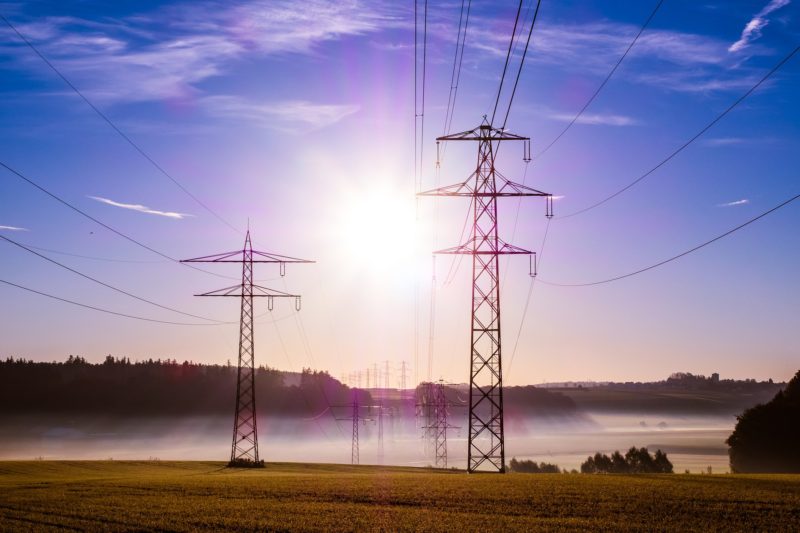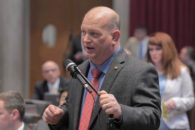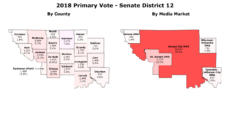After several months of negotiations and adjustments before the Missouri Public Service Commission (PSC), Ameren Missouri customers are set to see a rate increase for its services early next year. The new revenue will be earmarked for infrastructure and clean energy.
Electric and gas customers will see an increase on their bills beginning Feb. 28, 2022, increasing Ameren’s annual revenues for electric services by $220 million and gas by $5 million overall. The commission and Ameren are still working on the exact increase on individual customer bills based on their status as a commercial, industrial, or residential customer.
Ameren, the commission, and several stakeholders reached an agreement on the scope of the revenue increase, its use for customer programs, and Ameren’s transition to clean energy generation last week.
“Customers are experiencing better reliability and benefiting from cleaner energy thanks to infrastructure investments,” Ameren Missouri President and Chairman Marty Lyons said in a statement to The Missouri Times. “We are pleased to reach a settlement with stakeholders on a majority of the issues following a rate review inclusive of these investments. As we’ve done all along, we’ll continue working to keep rates as low as possible while making the necessary investments to build a stronger, smarter, and cleaner energy system for our customers.”
Before it takes effect, the commission will decide how the increase is divided between residential, commercial, and industrial customers — an issue the Midwest Energy Consumers Group (MECG), an advocacy group supported by several prominent Midwest businesses, asked it to consider carefully.
“Electricity represents a significant portion of operating costs for MECG members. When rates increase, that increase in cost puts pressure on the other expenses required by a business to operate,” Walmart Director of Energy Service Steve Chriss said before the commission on MECG’s behalf. “The commission should consider the impact on customers thoroughly and carefully in their examination of all facets of this case, to ensure that any increase in Ameren’s rates is only the minimum amount necessary for the utility to provide adequate and reliable service to each customer class.”
The rate adjustment included several initiatives for customers. Ameren’s Community Solar program — through which the company installs solar infrastructure on existing land, buildings, and parking lots at no cost to property owners — will be funded through the electric rate increase. Revenue will also go toward retiring coal-fired energy production centers and acquiring new wind facilities, according to Ameren.
Additionally, Ameren plans to eliminate fees for customers paying their bills with a credit card and reduce late fees when the rate increase takes effect.
Ameren’s lower gas rate increase reflected so-called “non-gas costs,” expenses incurred through operating and maintenance to safely deliver gas to customers, according to the PSC. The actual cost of natural gas was not a factor in the case.
Ameren filed its intentions before the commission in late March, seeking to invest in clean energy and reliability for the grid following February’s devastating cold snap and severe wind storms over the past few years. The original ask was for a $299 million increase in electric revenue and an increase of around $9.5 million for gas services.
Ameren Missouri Vice President of Legislative and Regulatory Affairs Warren Wood previously told The Missouri Times Ameren had kept its rates low for customers, with the most recent increase taking place in 2017.
Earlier this year, Ameren committed to investing more than $8 billion in renewable energy and infrastructure through 2025. Ameren plans to install more than 1 million smart meters and implement infrastructure upgrades, economic growth programs, and renewable generation systems over the next four years.
Ameren announced its intention to reach net-zero carbon emissions by 2050 last year as part of its Integrated Resource Plan (IRP), hoping to enhance its clean energy portfolio by expanding its hydro, solar, and nuclear energy facilities over the next two decades and phasing out all coal-based facilities by 2042.

Cameron Gerber studied journalism at Lincoln University. Prior to Lincoln, he earned an associate’s degree from State Fair Community College. Cameron is a native of Eldon, Missouri.
Contact Cameron at cameron@themissouritimes.com.
































